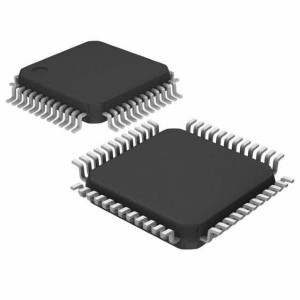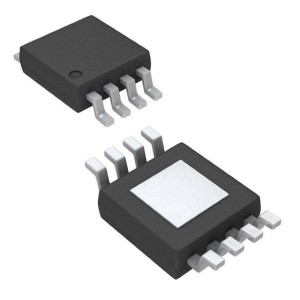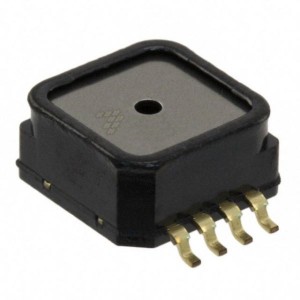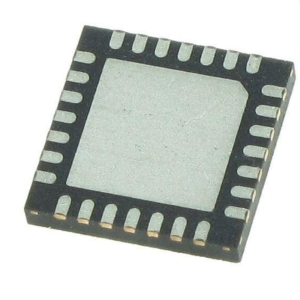STM8S207CBT6 8-bit Microcontrollers – MCU Performance Line, 24 MHz STM8S 8-bit MCU
♠ Product Description
| Product Attribute | Attribute Value |
| Manufacturer: | STMicroelectronics |
| Product Category: | 8-bit Microcontrollers - MCU |
| RoHS: | Details |
| Series: | STM8S207CB |
| Mounting Style: | SMD/SMT |
| Package / Case: | LQFP-48 |
| Core: | STM8 |
| Program Memory Size: | 128 kB |
| Data Bus Width: | 8 bit |
| ADC Resolution: | 10 bit |
| Maximum Clock Frequency: | 24 MHz |
| Number of I/Os: | 38 I/O |
| Data RAM Size: | 6 kB |
| Supply Voltage - Min: | 2.95 V |
| Supply Voltage - Max: | 5.5 V |
| Minimum Operating Temperature: | - 40 C |
| Maximum Operating Temperature: | + 85 C |
| Packaging: | Tray |
| Brand: | STMicroelectronics |
| Height: | 1.4 mm |
| Interface Type: | CAN, I2C, SPI, UART |
| Length: | 7 mm |
| Moisture Sensitive: | Yes |
| Number of ADC Channels: | 10 Channel |
| Number of Timers/Counters: | 6 Timer |
| Processor Series: | STM8S20x |
| Product Type: | 8-bit Microcontrollers - MCU |
| Program Memory Type: | EEPROM |
| Factory Pack Quantity: | 1500 |
| Subcategory: | Microcontrollers - MCU |
| Width: | 7 mm |
| Unit Weight: | 0.006409 oz |
♠ Performance line, 24 MHz STM8S 8-bit MCU, up to 128 KB Flash, integrated EEPROM, 10-bit ADC, timers, 2 UARTs, SPI, I²C, CAN
The STM8S20xxx performance line 8-bit microcontrollers offer from 32 to 128 Kbytes Flash program memory. They are referred to as high-density devices in the STM8S microcontroller family reference manual.
All STM8S20xxx devices provide the following benefits: reduced system cost, performance robustness, short development cycles, and product longevity.
The system cost is reduced thanks to an integrated true data EEPROM for up to 300 k write/erase cycles and a high system integration level with internal clock oscillators, watchdog, and brown-out reset.
Device performance is ensured by 20 MIPS at 24 MHz CPU clock frequency and enhanced characteristics which include robust I/O, independent watchdogs (with a separate clock source), and a clock security system.
Short development cycles are guaranteed due to application scalability across a common family product architecture with compatible pinout, memory map and modular peripherals. Full documentation is offered with a wide choice of development tools.
Product longevity is ensured in the STM8S family thanks to their advanced core which is made in a state-of-the art technology for applications with 2.95 V to 5.5 V operating supply.
■ Core
– Max fCPU: up to 24 MHz, 0 wait states @ fCPU ≤16 MHz
– Advanced STM8 core with Harvard architecture and 3-stage pipeline
– Extended instruction set
– Max 20 MIPS @ 24 MHz
■ Memories
– Program: up to 128 Kbytes Flash; data retention 20 years at 55 °C after 10 kcycles
– Data: up to 2 Kbytes true data EEPROM; endurance 300 kcycles
– RAM: up to 6 Kbytes
■ Clock, reset and supply management
– 2.95 to 5.5 V operating voltage
– Low power crystal resonator oscillator
– External clock input
– Internal, user-trimmable 16 MHz RC
– Internal low power 128 kHz RC
– Clock security system with clock monitor
– Wait, active-halt, & halt low power modes
– Peripheral clocks switched off individually
– Permanently active, low consumption power-on and power-down reset
■ Interrupt management
– Nested interrupt controller with 32 interrupts
– Up to 37 external interrupts on 6 vectors
■ Timers
– 2x 16-bit general purpose timers, with 2+3 CAPCOM channels (IC, OC or PWM)
– Advanced control timer: 16-bit, 4 CAPCOM channels, 3 complementary outputs, dead-time insertion and flexible synchronization
– 8-bit basic timer with 8-bit prescaler
– Auto wakeup timer
– Window watchdog, independent watchdog
■ Communications interfaces
– High speed 1 Mbit/s active beCAN 2.0B
– UART with clock output for synchronous operation – LIN master mode
– UART with LIN 2.1 compliant, master/slave modes and automatic resynchronization
– SPI interface up to 10 Mbit/s
– I2C interface up to 400 Kbit/s
■ 10-bit ADC with up to 16 channels
■ I/Os
– Up to 68 I/Os on an 80-pin package including 18 high sink outputs ‘
– Highly robust I/O design, immune against current injection
– Development support
– Single wire interface module (SWIM) and debug module (DM)
■ 96-bit unique ID key for each device









